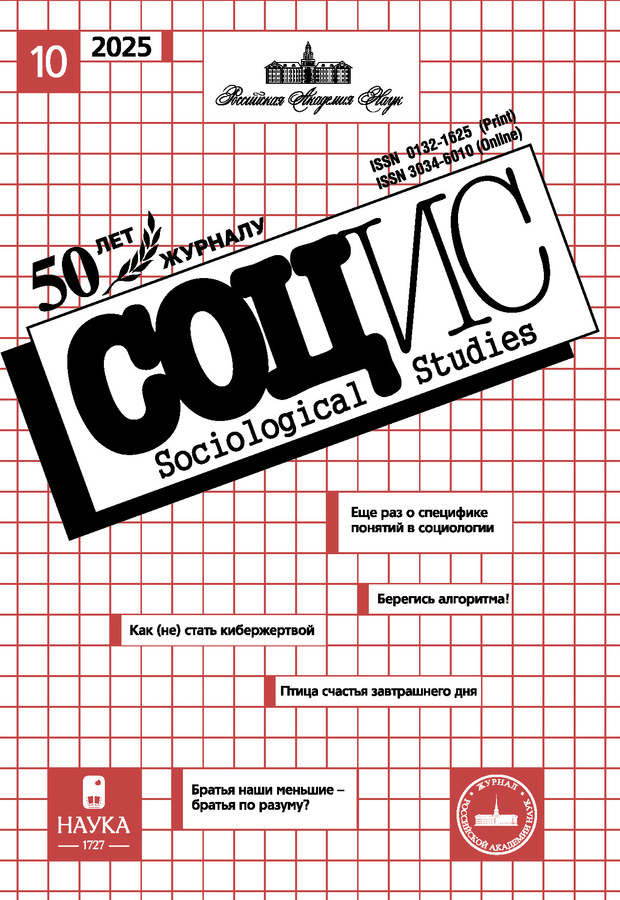Corporate Training in the Ecosystem of Adult Education: Employee Practices
- Авторлар: KICHEROVA M.N.1, EFIMOVA G.Z.1, TRIFONOVA I.S.1
-
Мекемелер:
- University of Tyumen
- Шығарылым: № 10 (2025)
- Беттер: 147-154
- Бөлім: FACTS. COMMENTS. NOTES
- URL: https://journals.eco-vector.com/0132-1625/article/view/696523
- DOI: https://doi.org/10.31857/S0132162525100123
- ID: 696523
Дәйексөз келтіру
Аннотация
The article reveals contemporary practices of corporate training in the context of the development of an adult education ecosystem and a novel paradigm of professionalism. The study’s empirical findings are based on a questionnaire survey administered to a sample of 1,204 workers. The results have shown the extent of employee engagement in corporate training programs, their motivation, as well as the prevalent obstacles. The findings have indicated a correlation between the level and intensity of employee engagement and company size. The findings have indicated that employees in companies with 500 employees aged 35 to 44, who can be termed “new professionals,” demonstrate the highest levels of engagement in training and investment in their professional and personal development. The effectiveness of corporate training has been assessed from the perspective of employees and companies alike. A significant proportion of employees has expressed positive attitude towards the benefits of the completed programs, particularly in terms of enhancing work quality and career prospects. The authors have identified the social functions of corporate training, new connections, and opportunities for building local adult learning ecosystems. The results are of scientific and practical interest to the specialists in education management, human resources, and educational policy for overcoming the qualification gap and the development of a national system of lifelong learning.
Негізгі сөздер
Авторлар туралы
M. KICHEROVA
University of Tyumen
Хат алмасуға жауапты Автор.
Email: m.n.kicherova@utmn.ru
Tyumen, Russia
G. EFIMOVA
University of Tyumen
Email: g.z.efimova@utmn.ru
Tyumen, Russia
I. TRIFONOVA
University of Tyumen
Email: i.s.trifonova@utmn.ru
Tyumen, Russia
Әдебиет тізімі
- Кичерова М. Н., Трифонова И. С., Паюсова Т. И. Принципы педагогического дизайна для обучения взрослых: векторы изменений и возможности моделирования на основе образовательных технологий // Science for Education Today. 2024. Т. 14. № 3. С. 44–69. doi: 10.15293/2658-6762.2403.03.
- Латов Ю. В. Экспертное мнение о российских профессионалах: тенденции, парадоксы, проблемы // Вопросы теоретической экономики. 2023. № 2(19). С. 118–132. doi: 10.52342/2587-7666VTE_2023_2_118_132.
- Оболенский Д. М., Шевченко В. И. Концептуальная модель интеллектуальной образовательной экосистемы // Экономика. Информатика. 2020. № 47(2). С. 390–401. doi: 10.18413/2687-0932-2020-47-2-390-401.
- Семёнов М. Ю., Кичерова М. Н., Трифонова И. С. Международный опыт образования взрослых: трансформация институциональных форм // Интеграция образования. 2024. Т. 28. № 2. С. 193–210. doi: 10.15507/1991–9468.115.028.202402.193–210.
- Семёнов М. Ю., Кичерова М. Н., Трифонова И. С. Экосистема образования взрослых: конструирование терминологического поля и междисциплинарного тезауруса // Образование и наука. 2024. № 3. С. 12–39. doi: 10.17853/1994-5639-2024-3-12-39.
- Тихонова Н. Е., Латов Ю. В., Латова Н. В. Человеческий капитал российских профессионалов: состояние, динамика, факторы. М.: ФНИСЦ РАН, 2023. doi: 10.19181/monogr.978-5-89697-420-8.2023.
- Хангельдиева И. Г. Образовательные экосистемы – тренд развития современного российского образования в ближайшем будущем // Вестник Московского ун-та. Сер. 20. Педагогическое образование. 2022. № 1. С. 68–88. doi: 10.55959/MSU2073-2635-2022-20-1-68-88.
- Cai Y., Ma J., Chen Q. Higher Education in Innovation Ecosystems // Sustainability. 2020. No. 12(11). P. 4376. doi: 10.3390/su12114376.
- Koroleva D., Khavenson T., Tomasova D. Genesis and Predictive Ability of Ecosystem Approach // Education. Foresight and STI Governance. 2023. Vol. 17(4). P. 93–109. doi: 10.17323/2500-2597.2023.4.93.109.
Қосымша файлдар









